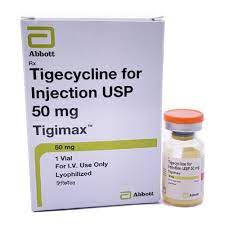thyronorm
Introduction to Thyronorm
Thyronorm is a widely used medication designed to address thyroid hormone deficiencies. It is primarily prescribed for individuals with hypothyroidism, a condition where the thyroid gland does not produce enough hormones to regulate the body's metabolism effectively. Thyronorm helps restore the normal balance of thyroid hormones, ensuring optimal body function. By supplementing the body with synthetic thyroid hormones, Thyronorm aids in alleviating symptoms such as fatigue, weight gain, and depression, which are commonly associated with an underactive thyroid. This medication plays a crucial role in helping individuals maintain a balanced and healthy lifestyle.
Composition of Thyronorm
The active ingredient in Thyronorm is Levothyroxine, also known as Thyroxine, at a dosage of 112 mcg. Levothyroxine is a synthetic form of the thyroid hormone thyroxine (T4), which is naturally produced by the thyroid gland. This hormone is vital for regulating the body's metabolism, energy production, and overall growth and development. By supplementing the body's natural thyroxine levels, Levothyroxine helps normalize metabolic processes and ensures that the body's systems function efficiently. This active ingredient is crucial in managing thyroid hormone deficiencies and restoring hormonal balance.
Uses for Thyronorm
- Treatment of hypothyroidism (underactive thyroid)
- Management of goiter (enlarged thyroid gland)
- Regulation of metabolic processes and energy levels
- Support for growth and development in individuals with thyroid hormone deficiencies
- Adjunct therapy in the treatment of certain types of thyroid cancer
Side Effects of Thyronorm
- Increased heart rate or palpitations
- Anxiety or nervousness
- Weight loss
- Excessive sweating
- Insomnia or difficulty sleeping
- Heat intolerance
- Diarrhea
- Headache
Precautions for Thyronorm
Before starting Thyronorm, it is essential to inform your healthcare provider about any existing medical conditions, allergies, or ongoing medications. Individuals with a history of heart disease, diabetes, or adrenal gland issues should exercise caution while using this medication. Regular monitoring of thyroid hormone levels is crucial to ensure the correct dosage and prevent potential side effects. Pregnant or breastfeeding women should consult their doctor to adjust the dosage as needed. It is important not to discontinue or alter the dosage of Thyronorm without consulting a healthcare professional, as this can lead to adverse health effects.
Specifications of Thyronorm
Thyronorm is available in tablet form, specifically as Levothyroxine/Thyroxine (112 mcg) tablets. Currently, there are no syrup, injection, or capsule forms of this medication. The tablets are designed for oral administration and should be taken as prescribed by a healthcare provider, usually on an empty stomach for optimal absorption.
Conclusion
Thyronorm is an essential medication for individuals dealing with thyroid hormone deficiencies. Its active ingredient, Levothyroxine, plays a vital role in regulating metabolism and promoting overall health. While effective, it is important to use Thyronorm under medical supervision to avoid potential side effects and ensure the correct dosage. By adhering to prescribed guidelines and maintaining regular check-ups, patients can effectively manage their thyroid conditions and lead a healthier life.

More medicines by Abbott
Available in 15 variations

bottle of 120 tablets

bottle of 120 tablets

bottle of 120 tablets

bottle of 100 tablets

bottle of 100 tablets

strip of 120 tablets

bottle of 120 tablets

bottle of 120 tablets

bottle of 120 tablets

bottle of 120 tablets

bottle of 120 tablets

bottle of 120 tablets

bottle of 120 tablets

bottle of 100 tablets

bottle of 120 tablets
Disclaimer : This information is not a substitute for medical advice. Consult your healthcare provider before making any changes to your treatment . Do not ignore or delay professional medical advice based on anything you have seen or read on Medwiki.
thyronorm
Prescription Required
Manufacturer :
AbbottComposition :
levothyroxine/thyroxine














.svg)
